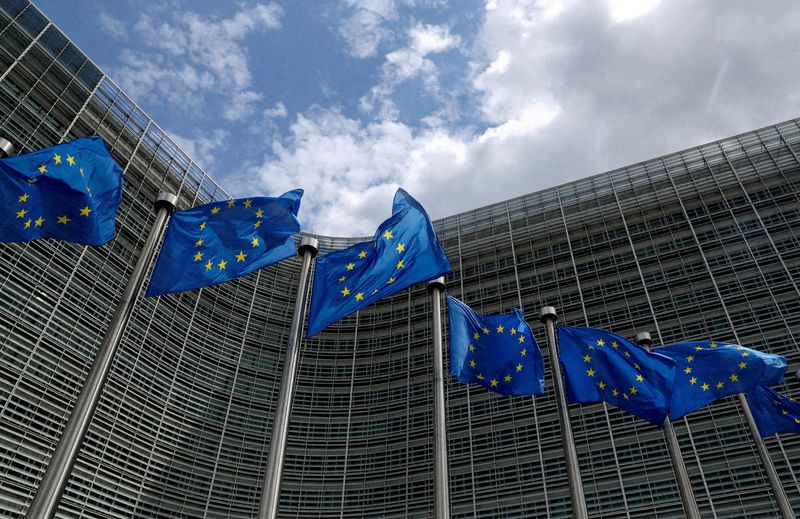BRUSSELS (Reuters) - European Union countries agreed on Friday to raise proposed targets for recycling and processing of raw materials required for its green transition and added aluminium to the list of essential minerals.
The Critical Raw Materials Act is a centrepiece of the EU strategy to ensure its industry can compete with the United States and China in making clean tech products and accessing the necessary raw materials.
The European Commission proposed in March that EU extraction of 16 "strategic raw materials", including lithium and copper, should rise to 10% of EU annual consumption by 2030, EU recycling to 15% and EU processing to 40%. No more than 65% of a material should come from a single third country.
EU countries agreed on Friday that the targets for recycling and processing should rise to 20% and 50% respectively, according to EU diplomats.
They also proposed adding aluminium, alumina (aluminium oxide) and bauxite (the principle aluminium ore) to the list of strategic raw materials.
Bauxite was already among 34 "critical raw materials", a group that includes all the strategic raw materials and other items such as arsenic and coking coal.
The act foresees simpler permitting procedure for critical raw material projects, monitoring to mitigate possible supply risks, increased recycling and diversification of imports.

The Council, representing EU countries, will still have to agree a final text of the law with the European Parliament, which is expected to establish its position in October.
The Council and parliament aim to conclude negotiations on the text by the end of the year.